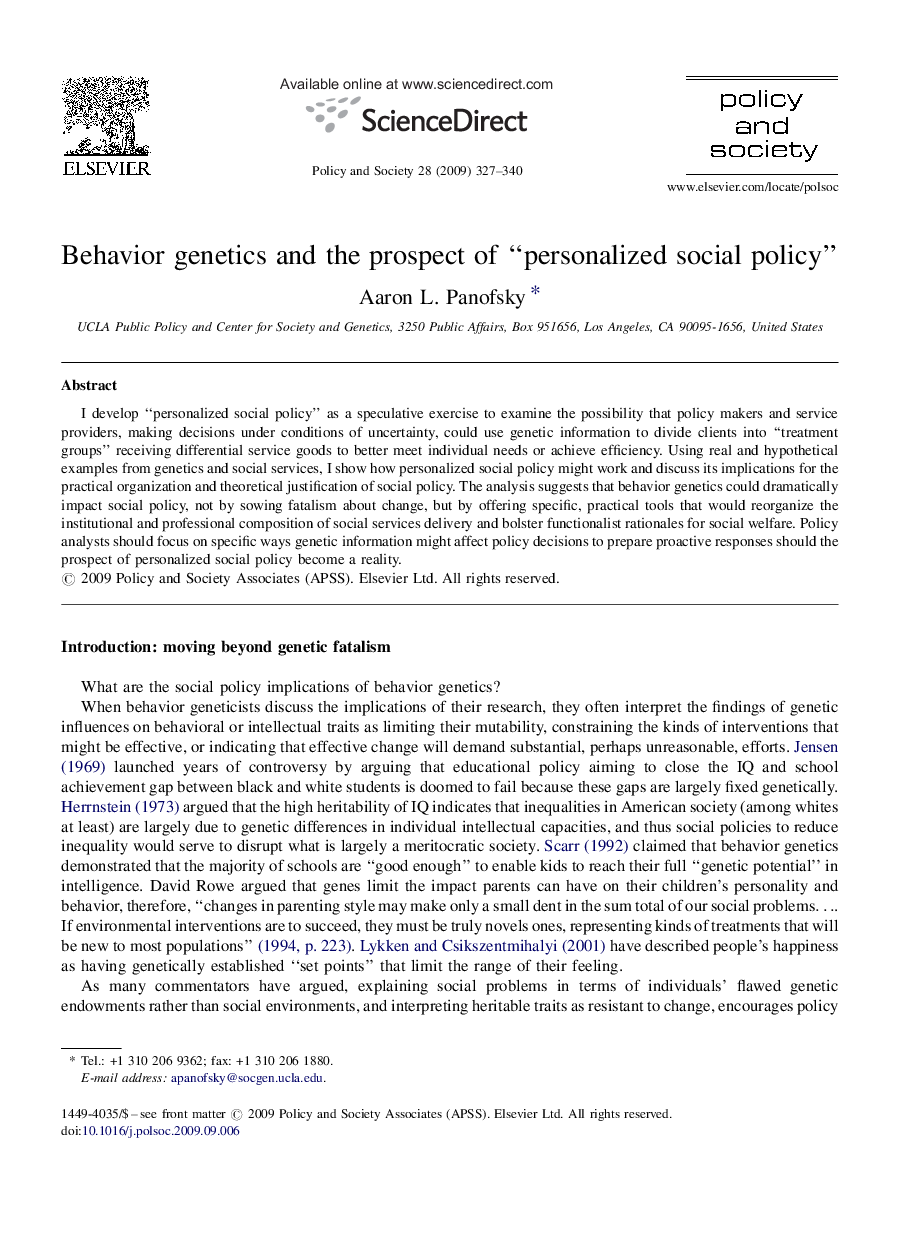| Article ID | Journal | Published Year | Pages | File Type |
|---|---|---|---|---|
| 1061725 | Policy and Society | 2009 | 14 Pages |
Abstract
I develop “personalized social policy” as a speculative exercise to examine the possibility that policy makers and service providers, making decisions under conditions of uncertainty, could use genetic information to divide clients into “treatment groups” receiving differential service goods to better meet individual needs or achieve efficiency. Using real and hypothetical examples from genetics and social services, I show how personalized social policy might work and discuss its implications for the practical organization and theoretical justification of social policy. The analysis suggests that behavior genetics could dramatically impact social policy, not by sowing fatalism about change, but by offering specific, practical tools that would reorganize the institutional and professional composition of social services delivery and bolster functionalist rationales for social welfare. Policy analysts should focus on specific ways genetic information might affect policy decisions to prepare proactive responses should the prospect of personalized social policy become a reality.
Related Topics
Social Sciences and Humanities
Social Sciences
Geography, Planning and Development
Authors
Aaron L. Panofsky,
